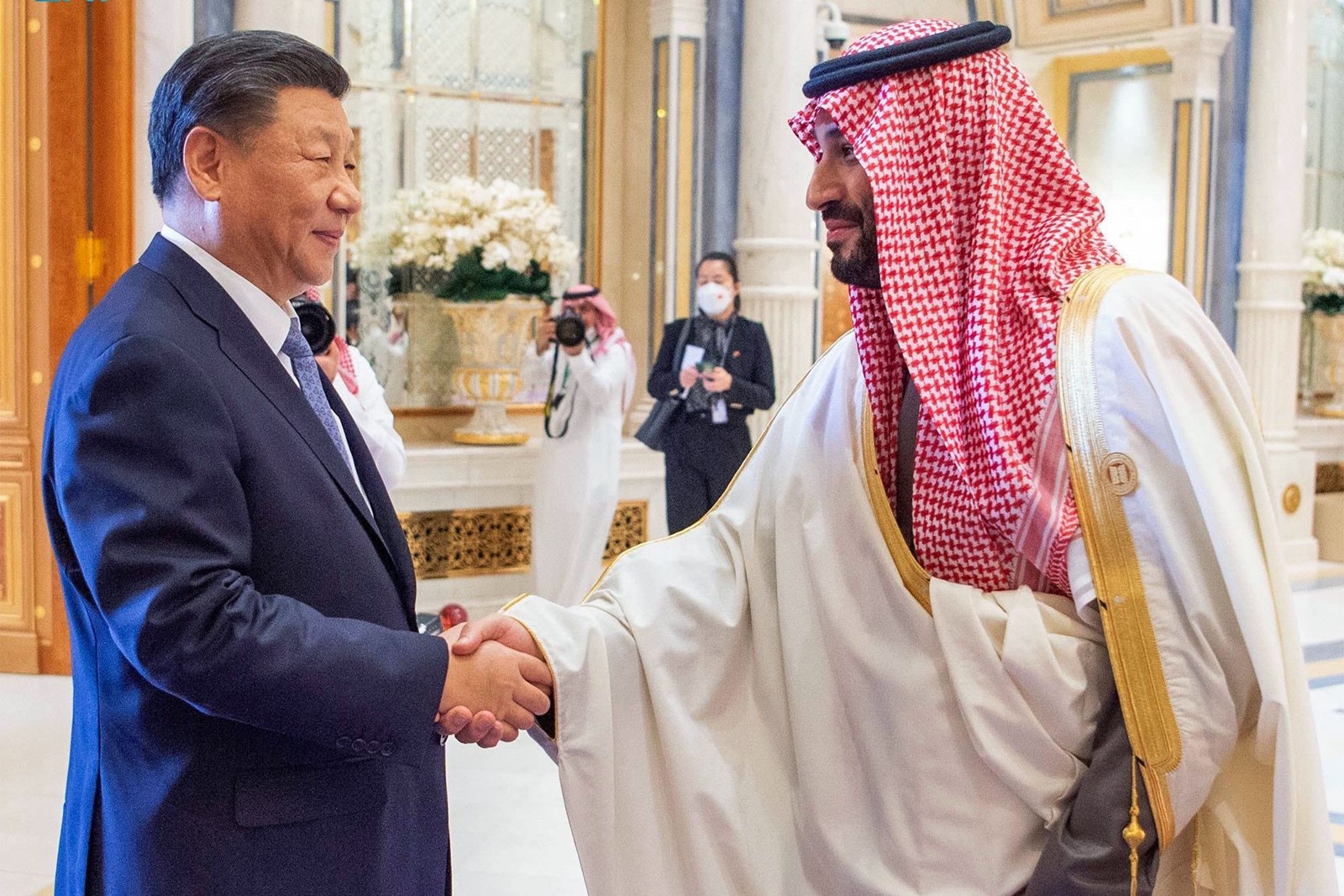
DUBAI, United Arab Emirates — Chinese leader Xi Jinping vowed Friday to import more oil and natural gas from energy-rich Gulf Arab states while not interfering in their affairs, likely seeking to cast Beijing in a more favorable light than Washington as America’s attention in the region wanes.
Xi also urged the Arab countries to conduct energy sales in the Chinese yuan, potentially divorcing the U.S. dollar from transactions in a region where the United States stations thousands of troops as a hedge against Iran.
China’s hands-off approach could appeal to leaders such as Saudi Crown Prince Mohammed bin Salman, who stands ready to rule the oil-rich kingdom for possibly decades, even after facing widespread international criticism over the killing of Washington Post columnist Jamal Khashoggi and the ongoing war in Yemen.
During Xi’s visit to Saudi Arabia this week, the prince welcomed him to a meeting of the Gulf Cooperation Council, and later to a wider summit of Mideast leaders.
“Standing at the crossroads of history, we must renew the tradition of friendship between China and the GCC,” Xi said.
Xi’s visit comes as China relies on the Gulf Arab states, particularly Saudi Arabia, for billions of dollars in crude oil imports to power his country’s economy as it tries to ease out of its strict “zero-COVID” policy.
“The kingdom believes that hydrocarbon energy sources will remain an important resource to meet the needs of the world for the coming decades,” Prince Mohammed said.
Brent crude traded Friday around $77 a barrel — down from a high of $122 in June. Higher prices could see the prince’s dreams of a $500 billion futuristic city of Neom on the Red Sea to overhaul the Saudi economy come true. But rising costs at the pump months earlier further alienated the administration of President Joe Biden.
Xi praised the GCC countries — Bahrain, Kuwait, Oman, Qatar, Saudi Arabia and the United Arab Emirates — as they “actively sought political solutions to regional hot spots” and invited their astronauts to China’s new Tiangong space station.
Xi also said China plans to build a joint China-GCC Nuclear Security Demonstration Center that will train 300 personnel on nuclear safety and technology. Already, the UAE has the Barakah Nuclear Power Plant, built with South Korea under an agreement that it will not enrich uranium — a possible pathway to a nuclear weapon.
But perhaps most importantly for the Gulf states, Xi stressed his nation will keep being a major buyer of their oil.
“China will continue to import a large amount of crude oil from the GCC countries, expand imports of liquefied natural gas, strengthen the engineering services in oil and gas upstream development and the cooperation in storage, transportation and refining,” Xi said.
The Israeli-Palestinian conflict came up as Xi spoke with the Arab leaders, especially Palestinian President Mahmoud Abbas. Xi said China remains committed to an independent Palestinian state based on the 1967 boundaries of Israel.
“We need to jointly oppose Islamophobia, carry out cooperation in deradicalization, and oppose linking terrorism with specific ethnic groups and specific religions,” he said.
However, Xi made no mention of his nation’s harsh policies toward Uyghurs and other Muslim minorities. More than 1 million people have been sent to detention centers, forced to denounce Islam and swear fealty to Xi and the party. Saudi Arabia, home to the holiest sites in Islam, also has provided political cover to China amid the crackdown.
Xi also did not mention Iran, a rival repeatedly brought up by Prince Mohammed in his remarks. Iran is enriching uranium at its closest-ever levels to weapons-grade material — even as it faces nationwide protests challenging its theocratic government.


 PREVIOUS ARTICLE
PREVIOUS ARTICLE
